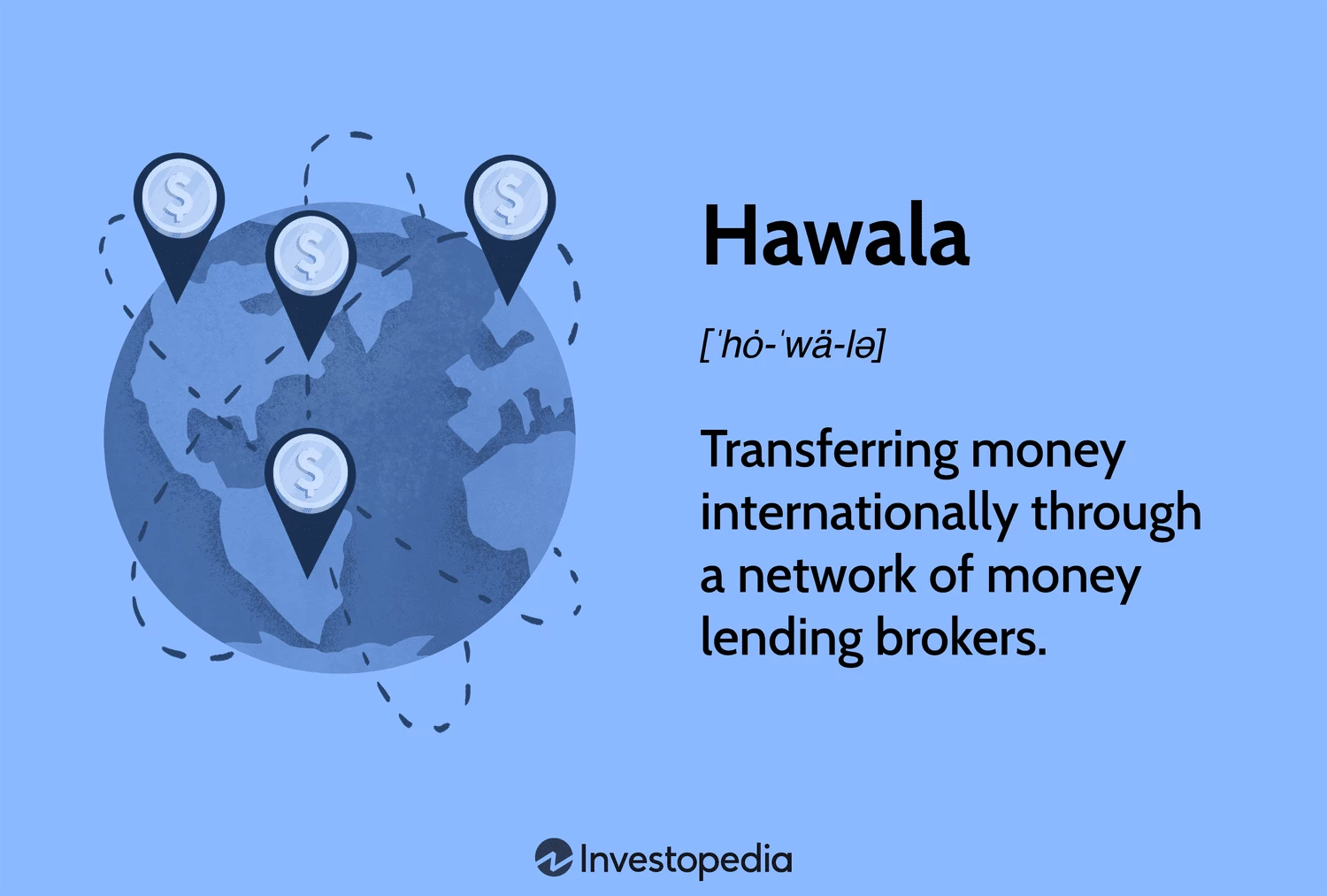Understanding Hawala: A Discreet Money Transfer System
Hawala, often referred to as an underground banking system, is a method of transferring funds without the physical movement of money. Essentially, it is a form of money transfer that operates on trust, allowing money to move without any currency physically changing hands.
Primarily used as an alternative remittance channel, Hawala transactions occur outside the conventional banking structure. Hawala relies on a network of brokers who facilitate transactions based on trust and mutual book balancing, without the need for formal documentation like promissory notes.
### Key Takeaways:
– **Ancient Origins:** Hawala networks date back to ancient times and are now prevalent among expatriates from developing countries who send remittances back home.
– **Anonymity:** Transactions made through Hawala offer a level of anonymity, with no official records kept, making it challenging to track the source of funds.
– **Financial Inclusion:** Hawala is now entering the realm of financial technology, enabling money transfers for unbanked and underbanked populations globally.
– **Regulatory Challenges:** Some countries, including India, have banned Hawala due to its informal nature and lack of oversight.
The Operational Dynamics of Hawala
Originating in South Asia during the 8th century, Hawala has evolved into a global money transfer system, particularly prevalent in the Islamic community. Unlike traditional bank wire transfers, Hawala relies on a network of brokers known as ‘hawaladars’ to facilitate transactions.
These brokers maintain informal records of credit and debit transactions, settling debts through various means such as cash, property, or services. Failure to honor commitments in the Hawala system results in social sanctions, highlighting the system’s reliance on trust and mutual respect.
### Benefits of Hawala:
– **Ease of Use:** Hawala offers a simple and efficient way to transfer money, especially for migrant workers sending funds to their home countries.
– **Cost-Effective:** With lower fees compared to traditional banking services, Hawala is a cost-effective option for individuals in regions with limited access to formal financial systems.
– **Speed:** Transactions through Hawala are often swift, taking only a day or even a few hours to complete.
Illustrating Hawala with an Example
To illustrate how Hawala works, consider Maryam who wants to send $200 to Amir in another country. She engages a hawaladar, Nasir, providing the transaction details. Nasir contacts a dealer in Amir’s city, Muhammed, who transfers the funds to Amir without actual money movement.
The entire process, from initiation by Maryam to Amir’s receipt of funds, occurs swiftly with no physical currency involved, showcasing the reliance on trust and honor within the Hawala system.
Hawala and Its Association with Illicit Practices
Despite its legitimate uses, Hawala is also exploited for illegal activities like money laundering and terrorism financing, leading to its moniker as underground banking. The system’s lack of regulation makes it attractive to those seeking to evade taxes or finance illicit operations.
Additionally, the anonymity inherent in Hawala transactions poses challenges in combating terrorism, as tracking the money trail becomes arduous without formal documentation.
Government Oversight of Hawala Transactions
The unregulated nature of Hawala transfers has prompted governments worldwide to reassess their regulatory frameworks. Countries like India and Pakistan have enacted stringent laws to curb illicit Hawala transactions and enforce registration requirements on money changers.
Through legislative measures like the Foreign Exchange Management Act and the Prevention of Money Laundering Act, countries aim to deter the misuse of the Hawala system for unlawful activities.
Hawala and the Rise of Financial Technology
Fintech firms are incorporating Hawala principles into their services, expanding financial access for unbanked populations. Mobile banking platforms like Paga and M-Pesa are leveraging Hawala dynamics to promote financial inclusion, particularly in regions with limited formal banking infrastructure.
The Verdict on Hawala
Hawala represents a unique system for transferring funds, offering a seamless and anonymous alternative to traditional banking channels. While advantageous for many, its misuse for illicit activities underscores the need for stringent regulation and oversight to prevent financial malpractice.
As discussions continue on the role of Hawala in the financial landscape, striking a balance between facilitating legitimate transactions and combatting illegal practices remains a priority for authorities and the financial industry.
